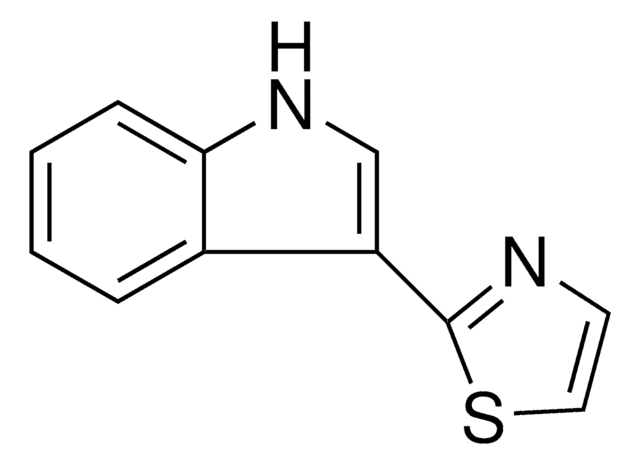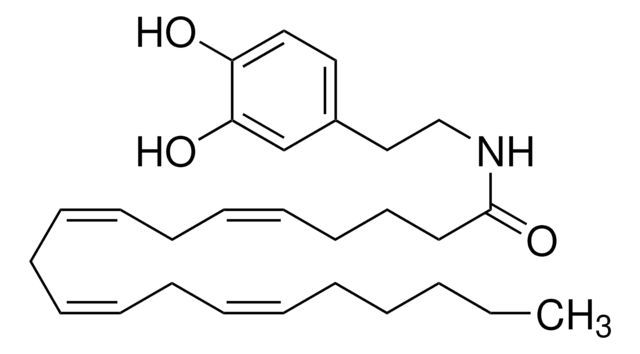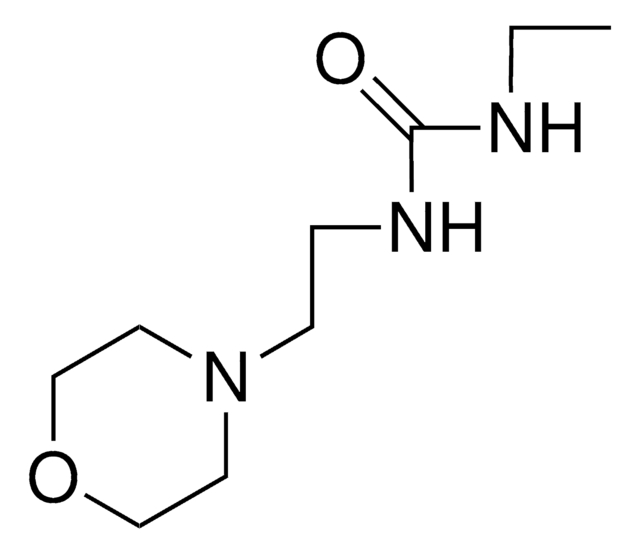SML1635
Brassinin
≥98% (HPLC)
Synonym(s):
Brassinine, Methyl N-(1H-indol-3-ylmethyl)-carbamodithioate, N-(1H-indol-3-ylmethyl)-carbamodithioic acid methyl ester
About This Item
Recommended Products
Quality Level
Assay
≥98% (HPLC)
form
powder
color
white to beige
solubility
DMSO: 20 mg/mL, clear
storage temp.
−20°C
SMILES string
S=C(SC)NCC1=CNC2=C1C=CC=C2
InChI
1S/C11H12N2S2/c1-15-11(14)13-7-8-6-12-10-5-3-2-4-9(8)10/h2-6,12H,7H2,1H3,(H,13,14)
InChI key
QYKQWFZDEDFELK-UHFFFAOYSA-N
Biochem/physiol Actions
Other Notes
Storage Class Code
11 - Combustible Solids
WGK
WGK 3
Certificates of Analysis (COA)
Search for Certificates of Analysis (COA) by entering the products Lot/Batch Number. Lot and Batch Numbers can be found on a product’s label following the words ‘Lot’ or ‘Batch’.
Already Own This Product?
Find documentation for the products that you have recently purchased in the Document Library.
Our team of scientists has experience in all areas of research including Life Science, Material Science, Chemical Synthesis, Chromatography, Analytical and many others.
Contact Technical Service








